As a business owner or senior manager, you want to ensure your workforce is compliant and has the right skills to align with your strategy and keep you competitive. You also want your staff to optimise their performance and be enabled to develop into new roles.
You can achieve this through competency management. Competency management is the practice of identifying the skills, knowledge and training each staff member currently possesses, and what training they might need to develop in their role and better contribute to the business strategy.
Competencies might be particular skills, such as first aid training, or softer skills like customer focus. They may be particular to the role, or common to everyone in the business. The competencies required by staff are usually detailed in their job descriptions.
A competency management system (CMS) allows business owners and senior managers to track the competencies of staff at their organisation. They are an extremely useful tool for understanding the skills and training of staff, and where any gaps might be – especially gaps in compliance.
Competency management is becoming critical as the rail industry faces serious skills shortages. Awareness of strengths and gaps in your workforce enables you to identify opportunities to fill industry shortages.
Why your business should have a competency management system
A CMS enables better business planning and decreases risk. It enables business leaders and senior managers to easily understand what skills and training your staff possess and provides an audit trail of relevant competencies.
Rather than just tracking training, a CMS helps you track competencies as proved through observation and assessment. This is important to ensure staff are competent to do their job – not just trained. Businesses of all sizes will find a CMS useful.
1. You can understand, at a glance, what skills your business has (and identify any gaps)
Any business, large or small, has difficulties with easy access to useful information about its staff skills and training. People join and leave the business, some have training that is time-limited, many will want to progress into more senior roles. A CMS allows you to easily understand what skills your staff, teams and organisation possess.
A CMS negates the need for fiddly spreadsheets or physical records. It ensures that important information about competencies is in one place and easily accessible. You can view this information at an individual, team or organisational level – giving many different views of interacting competencies.
This enables you to identify what skills your staff possess and what skills are needed to meet your business plan and take advantage of market opportunities. Having a clear view of what skills your staff possess also helps your succession and business continuity planning. There can be a business cost in not tracking competencies when you miss out on work because your staff are not compliant or are lacking in competitive skills.
2. You have an audit trail of relevant competencies, which decreases business risk
A CMS gives you peace of mind that all staff have up-to-date and compliant training, and that accurate information on staff competencies is easily accessible in the event of an audit or dispute.
We all know how important it is to ensure that staff are qualified and have the appropriate authority to do work across business areas and specific projects. There are serious risks to safety and reputation if these requirements are not met.
A CMS will alert managers when training is needed, either because it is a required aspect of a staff member’s role or because previous training is going to expire. This helps you ensure staff are trained and qualified for the roles they are in.
In the event of an audit or investigation, a CMS allows you to easily access staff training records to prove that your staff have the required training – no digging through records or potentially missing important information. A CMS will capture information on certificates and industry body cards that show proof of training attendance. Quickly and successfully passing an audit or settling a dispute demonstrates that your business can be trusted – making you more attractive in the market.
3. Helps you track more than just training records
A CMS doesn’t just track training undertaken by staff – it tracks whether staff are competent in a particular skill. That is, a CMS will track whether staff have undertaken training and, consequently, been assessed to ensure they know how to action what they learnt. Skills need to be assessed through one-on-one observations and interviews to ensure competence – a CMS will capture these competency assessments. You will know that staff are capable in their roles and that you are receiving a return on investment in training.
Tracking the cost of training is an important feature of a CMS, as it is essentially information about the cost of investing in people. This cost can, again, be viewed at an individual, team, or organisational level – allowing you and your team leaders to plan training and development and target it to meet budget and business development goals. Once training and development plans have been built for individuals and groups, these can be managed within the CMS to ensure development goals are being reached.
Required skills and training are not the only competencies that enable staff to succeed in their roles. A CMS can also hold information on softer skills – such as second languages or stakeholder management.
4. Useful for businesses of all sizes
Businesses of all sizes will find a CMS a useful tool. It replaces other forms of record keeping, such as spreadsheets or physical records – meaning all your competency information is in one place, accessible and easily analysed.
Having access to a single point of information on staff competencies is very useful for large organisations. Using spreadsheets or physical records creates risk – multiple data sources in multiple formats make it difficult to monitor staff skills and training and leave room for error. This is especially true with many staff.
Small organisations may think that it is easier to use spreadsheets for staff competencies and a CMS is not worth the money. However, the benefits of a CMS apply equally to organisations of all sizes. Confidence in your staff competencies, easy access to information and the enabling of skills and development-focused business planning is valuable to any business. Furthermore, using a CMS as a small organisation can help to win business. It indicates that your staff can be trusted and can feed information into the CMSs of larger organisations you are contracting to, making it easy to work with you and check your staff are qualified.
Skills ID is a great CMS option for any business
NSAR has designed a CMS platform called Skills ID to help organisations access and track their overall and individual staff skills set, training requirements, progress and authority to work.
Skills ID transforms raw workforce data into a dashboard that visually displays all information in a user-friendly way. It provides a centralised and secure online record of competencies, accessible on all devices. Skills ID can be integrated with your organisation’s existing IT infrastructure and systems, as well as other CMSs that your partners may use.
Not all CMSs are created equal or fit for purpose. Some have been designed for corporate reporting, not for operations. Operational work is a lot more fluid – you need up-to-date information more regularly than for quarterly reporting. Skills ID is nimble and able to be used by operations management for everyday work.
Skills ID also works in unison with NSAR’s Skills Intelligence Model (SIM), which uses aggregated workforce data to enable effective workforce planning. The SIM can take the information in your Skills ID portal and analyse it to determine investment, resourcing and skills requirements for the future.
Speak to NSAR to find out how the Skills ID CMS can help your business.

